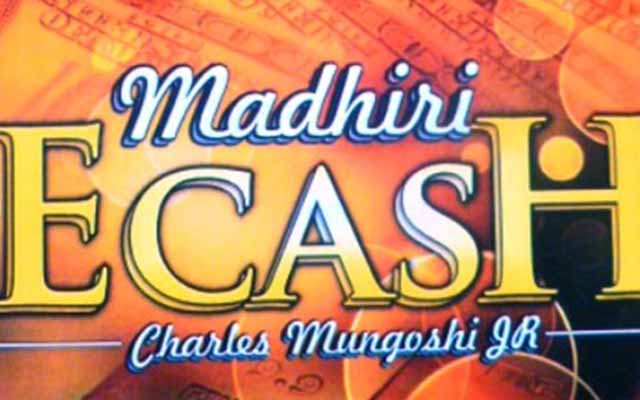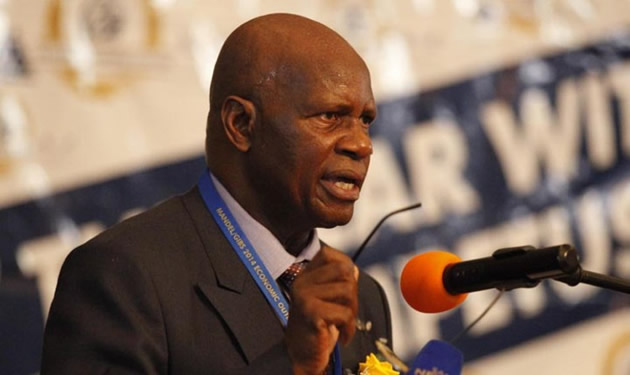Book urges mental shift in economic empowerment

Beaven Tapureta : Bookshelf
“Madhiri eCash” (2015) written and published by rising author Charles Mungoshi Jnr is a humorous yet stinging motivational piece about how to empower oneself in cash matters. Just as the title can be taken to be a mixture of Shona, street lingo and English, translatable to “cash deals”, the same feat is found inside the book. An artistic combination of Shona, street lingo and English expressions embody the message and spirit of a dedicated socio-economic journey.Sometimes it enchants a reader more to read a book set in the “now”and dealing with a subject everybody is already deep into. One reads such a text with the zeal to bump into a certain answer. The book “Madhiri eCash” celebrates some insight into the cash situation at hand. If read without haste, this 45-page book gets you reflecting on your personal cash status. Perhaps if “Madhiri eCash” was published a decade ago and applied in people’s lives, we would not have come to a deadlock now!
The issue of cash is a daily subject of discussion in our beloved country. As Government is working hard to find a solution, Mungoshi Jnr poses challenging economic questions to the individual because it is the individuals who make a nation.
The reality is that it is timely now to consider what black economic empowerment means in simple terms. It starts with the intellect. Economic empowerment is the song of today. Men and women everywhere are passionately engaged in something that gives them hope. Carpenters, vendors, artists, shoe makers/manufacturers, builders, writers, etc. Generally, all have understood the need for working towards building successful enterprises or organisations or bands but one thing that at times pulls down many people, particularly Zimbabweans for whom the book was written, is the wrong ‘thought system’.
Mungoshi Jnr, possibly seeing that language indeed plays a role in changing a person’s mind, has resorted to addressing that damaged ‘thought system’ directly in a language it uses.
“I have used Shona slang mixed with English for the sole purpose of communicating soundly to Zimbabweans in this generation for a change in the thought system,” he writes in the book’s introduction.
The text is cast on the centre of every page like poems and you are forced sometimes to read following the rhythm but the rhythm you hear are echoes from a young ghetto-man, echoes resuscitated to empower, to confess and inspire.
The book opens with:
“Wakambofamba muGhetto here kana kugara muGhetto? Ndomandakakurira and staira yese ndoipihwa rough. Taigara paCorner nanaHwishu neTeam tichirova maSamoosa ndeimwe iyaiye. Unoketa takazongokura inini ndatove nemudon wangu team yafararira neNyika kutsvaga chinobatika.”
Mungoshi Jnr is not writing fiction, not at all. Yes the gift of writing runs in the Mungoshi family. His father’s name is not something we are going to talk about today! Yet Mungoshi Jnr’s writing style is confessional, playful and absorbing as he tackles very important issues like how the mental attitude plays a role in achieving personal success. He also, using real life examples, speaks about the good of starting small, the tragedy of laziness, need for self-control to understand money.
The symbol of bag, in local slang, stands for cash and Mungoshi Jnr emphatically, consciously uses this symbol in his book. A reader can say the symbolic urban language he uses is one of the powerful elements of his work as it flows naturally like a voice of a ghetto dreamer, real dreamer who has seen it all and wants to give the sight to others as well. Cash slang rules in the city with new words or phrases being coined every day, carrying new, special meaning within today’s society. It is sometimes the language used by the ‘conscious’ business-minded people.
In “Madhiri eCash”, the language makes the author’s voice conversational like a familiar talk with mates over a glass of wine or riding home in a kombi!
About the power of positive language/words in declaring financial victory over one’s situation, Mungoshi Jnr writes, “Mashoko anesimba, inga bhebhi rako nderako nekuti wakariti I love you. Usatambe neshoko baba — shoko ndiro rinoburitsa pachena zviri mupfungwa . . . Zvione uri Ambassador kana zii businessman remhando yepamusoro. Channel your thinking to support your dreams and desires. Unohwina chete!” (Page 7)
It would be foolish for anyone to force him/herself to be like someone because God blessed each person with a gift. This is the truth. Now having a gift is not enough, according to Mungoshi Jnr, you have to “fight to be the best of you”. He makes an interesting observation in a section titled “Boys reZimdancehall”.
“Haaa inini kutaura live dancehall yaindimara because ndaingoona riri ruzha but I realised kuti no mhani boys racho rinengerichitospakwa . . . Kana ari saWinky D ndakatoseka kuti rasta vanoda rubatsiro but zuva randakanzwa kuti blaz vakaridza paUK ndopandakazoona kuti team yacho iri serious nemaNgoma. Inini ndailachuka nekuseka asi handisati ndatombosvika kuVisa Office yeBritish Embassy but jahman vakato pihwa visa vakabaya,” writes Mungoshi Jnr.
He warns against unethical ways of making money. Hard work and sincerity, as implied in the book, are the answers to success. However, there are people who are jealous of successful people whom they quickly write as having used “juju” to amass bag. Snakes that vomit cash, blood-sucking goblins, tree leaves turning into American notes, etc. Mungoshi Jnr narrates a brief encounter with some such cultural fears or what one could easily term cultural ignorance.
In “Kutya Bag”, author shows that the mental shift needed for success is also cultural.
“Tanga takamirira mota dze private dzinotakura vanhu to Chitungwiza . . . paJoina apa . . . Saka chiii takato chiller paye bvapasvika ziHammer H3 blaz varimo bvavati ChiTown, Zengeza 1 to 3 ahhh vanhu vakasuduruka baba. Moms yanga iri paside pangu bvayati baba ava varikuda kutichekeresa. Hanzi angatakure madhora nemota mbishi yakadai,” he writes.
The issue of giving each other a shoulder is also dealt with under the topic “Kuomera”. Generosity, author explains, attracts bag, that is, more blessings. Often when people succeed, they forget the hand that helped them cross the bridge, and only when they fall again do they remember. “Bag rinongoda ka life kemunhu ari generous waiziva!” advises Mungoshi Jnr.
Although “Madhiri eCash” was part of the ‘multi-book’ launch done by the author last month in Harare, it is going to be officially launched on its own on July 16 at The Avon in Avondale.
A motivational, inspirational speaker, author and an entrepreneur, Mungoshi Jnr is involved in a number of projects which include a piggery project in Chivhu, and he is working on establishing cattle ranching. He is a founding member of Mungoshi Press, a family publishing house, and board member of an organisation called THE SHIFT which has become popular in the city. THE SHIFT is a platform for people to share ideas on self-improvement and personal success. For the past seven months, Mungoshi Jnr has been writing for The Herald under his column “Versatile Fufu”. He started a book selling project called “The Campaign Book Sale” which is designed to assist authors to push their books and beat piracy which has well infested the profit authors can make from their works.
Mungoshi Jnr has travelled to various countries doing motivational and inspirational speeches and this year he will be in South Africa and Zambia.








Comments